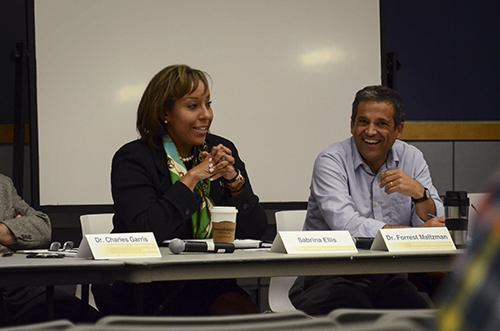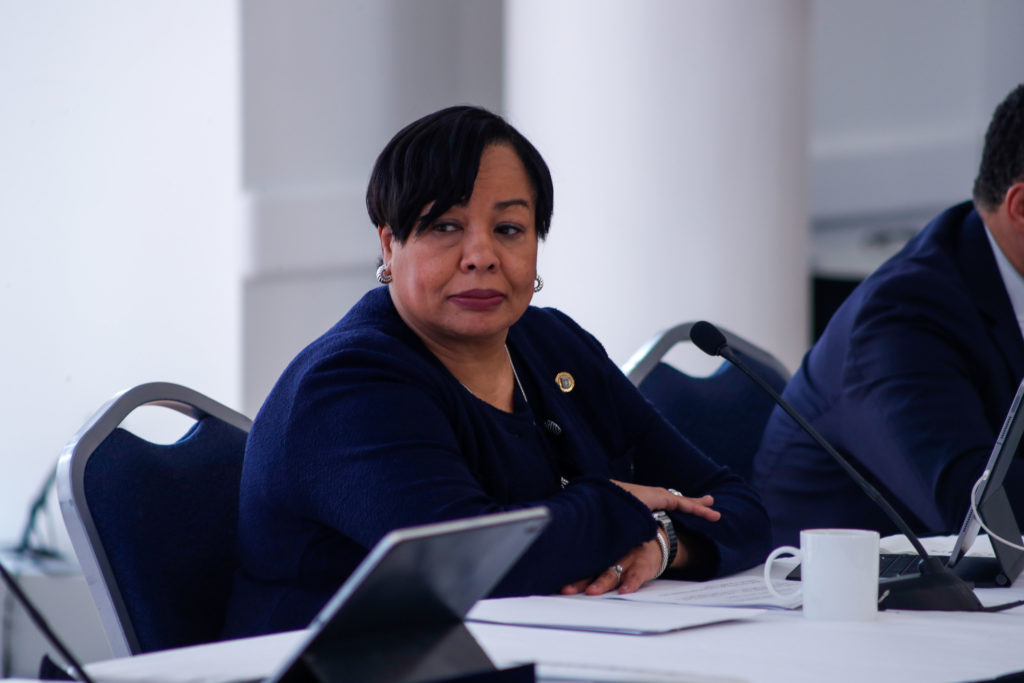
Senior Vice Provost for Academic Affairs and Planning Forrest Maltzman and Vice President for Human Resources Sabrina Ellis fielded a majority of the questions posed to a panel by representatives of the GW Staff Association and other GW staffers, defending the University’s actions on staff benefits over the past 12 months.
The town hall also marks the first time many staff were able to directly question officials after an announcement from the University in June revealed that tuition benefits would not continue at past rates for staff who were employed by GW at the time of the decrease.
Tuition benefits have been a major point of contention for staff since it was announced in September that those benefits would be rolled back. A task force appointed by University President Steven Knapp in December released its short term recommendations in May, including grandfathering the tuition benefits, but Knapp only agreed to keep health insurance premiums at about 3 percent.
Many of the questions centered on tuition benefits, including why the decision was made to not keep employees at past rates, which had covered 96 percent of their tuition if they chose to pursue one or more degrees at GW. Staff now has to cover 10 percent of their costs, more than double their previous rate of 4 percent.
Ellis said the University chose not to continue the past tuition benefit rates because of the financial difficulties the University is facing, and a decision had to be made that would help the most amount of staff. GW laid off 46 staff members in April, and officials have called for 5 percent budget cuts across departments.
“The task force recommendations have been read and they have been reviewed and they have been discussed by University leadership,” Ellis said. “I know this is a frustrating process and I know there can be some discouraging elements, but I don’t think benefits is a one-and-done conversation.”
Maltzman, who was recently appointed to the benefits advisory task force, said the University was committed to better communicating with staff, after several employees said they wanted to a more direct line of contact with GW because they had found out essential information, like the rolling back of tuition benefits, from sources like the Hatchet.
“One of the lessons I’ve learned over the years is that communication is absolutely essential, you can’t connect too much or have too much input,” Maltzman said, adding that the composition of the task force was roughly equal of both staff members and faculty.
Ben Hopkins, an associate professor of history and international affairs and a member of the task force, said at the meeting that the University wasn’t investing enough in its employees.
“I think it’s pretty profound when the president himself appoints this blue ribbon committee to look into benefits and then says ‘Thank you very much’ and walks away. It puts significant question marks over the University’s willingness to work on this issue,” Hopkins said.
Staff also took the opportunity to bring up topics like employee retention and ways staff can advance their status at the University, initiatives Ellis and Maltzman promised the administration was also working on.
Ellis said her department has spent the past two and a half years honing in on ways to help staffers find more mobility in their positions at GW. A restructuring of staff positions, which will be implemented later this year, was announced in April.
The task force is set to release their long-term recommendations and report on benefits in December.




